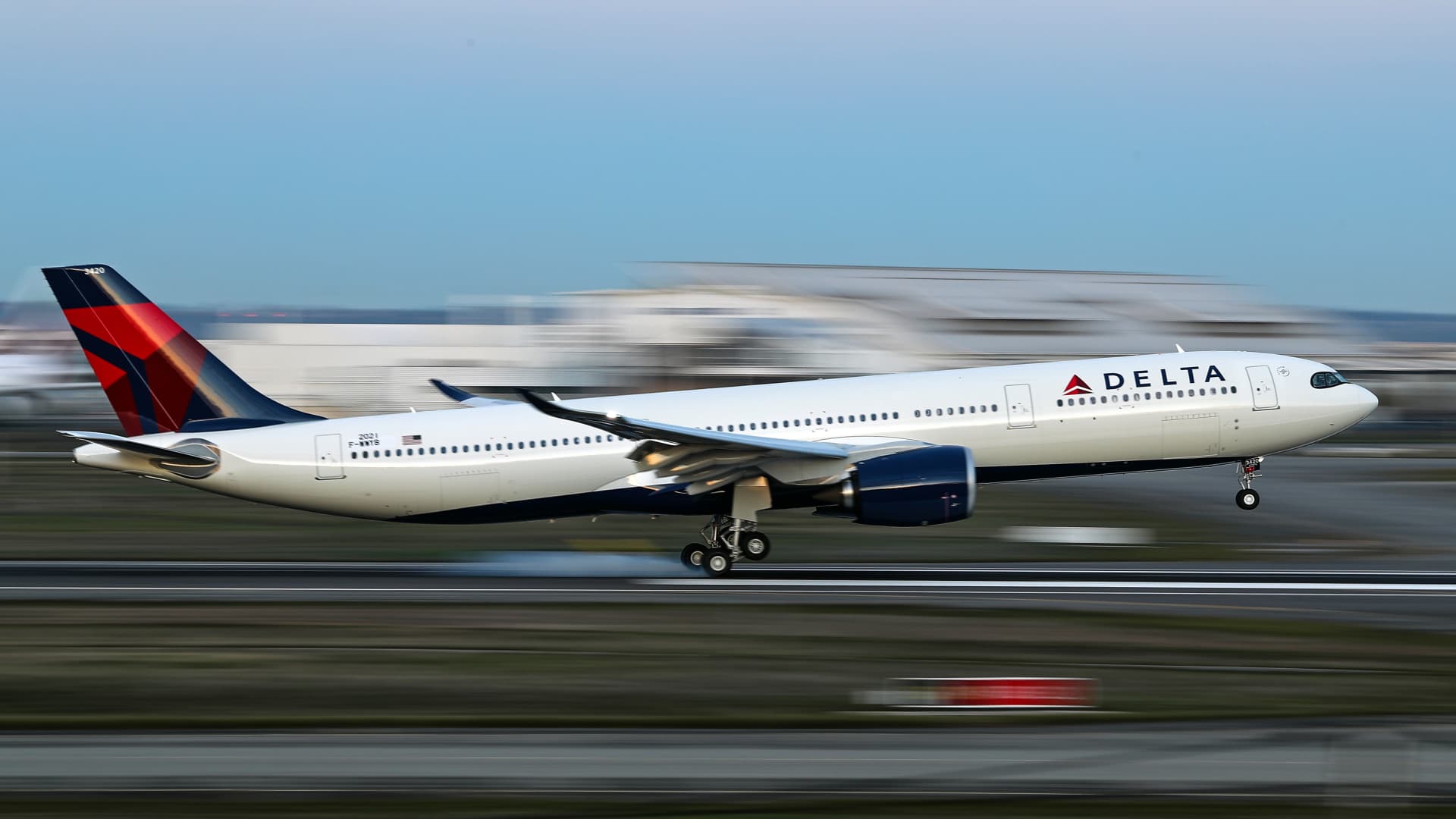Nurphoto | Nurphoto | Getty Images
Delta Air Lines achieved record-breaking revenue and earnings in its latest quarter, thanks to an unexpectedly strong demand for travel that has defied concerns of an economic slowdown.
Outstanding international travel and a significant increase in demand for premium seats, such as first class, were key contributors to Delta’s success during the three-month period ending June 30. Additionally, the airline experienced a 22% decrease in fuel costs, which positively impacted its overall financial performance.
Delta, based in Atlanta, has revised its estimated earnings for 2023 to be in the range of $6 to $7 per adjusted share, surpassing its previous projection of $5 to $6 per share.
Following the release of its results, Delta’s shares rose by over 4% in premarket trading.
Here’s a breakdown of Delta’s performance in the second quarter, compared to the expectations of Wall Street analysts:
- Adjusted earnings per share: $2.68 cents vs. $2.40 expected.
- Adjusted Revenue: $14.61 billion vs. $14.49 billion expected.
Delta is the first U.S. airline to announce its second-quarter results, setting an optimistic tone for the industry going forward.
CEO Ed Bastian expressed confidence in the future, stating that consumer demand for travel is poised to fuel bookings for years to come.
“I believe the positive trends we have observed this year will continue,” Bastian stated in an interview.
For the third quarter, Delta anticipates earnings per share of $2.20 to $2.50, surpassing analysts’ predictions, along with a 16% increase in capacity. The airline also expects revenue to jump by as much as 14% compared to the previous year.
In the second quarter, Delta reported a net income of $1.83 billion, or $2.84 per share, a significant increase from $735 million, or $1.15 per share, in the same period last year. Adjusted earnings per share for the quarter were $2.68, up from $1.44 in the previous year.
Delta’s net income reached its highest level since the fourth quarter of 2013, when the company recorded over $8 billion in tax-loss credits.
In the three months ending June 30, Delta generated $14.61 billion in revenue, excluding sales from its refinery. This represents a 19% increase compared to the previous year and exceeds analysts’ estimates. The airline’s total revenue of $15.58 billion was up 13% from the same period last year.
Trans-Atlantic travel performed exceptionally well during the spring and early summer, with revenue from these routes increasing by over 60% compared to the previous year. In contrast, domestic revenue saw an 8% increase, while passenger revenue as a whole recorded a 21% growth. Delta and its competitors have expanded capacity to Europe this year in anticipation of the travel recovery. (Bastian mentioned in an interview with CNBC that he recently traveled to the south of France.)
Premium ticket revenue growth outpaced the growth in economy class sales.
Unit revenues, which measure the amount of revenue generated per seat flown per mile, increased by 1% year-over-year, despite a 17% increase in capacity.
“To achieve high double-digit capacity growth and maintain overall pricing stability is quite remarkable,” Bastian commented.
Denial of responsibility! VigourTimes is an automatic aggregator of Global media. In each content, the hyperlink to the primary source is specified. All trademarks belong to their rightful owners, and all materials to their authors. For any complaint, please reach us at – [email protected]. We will take necessary action within 24 hours.


